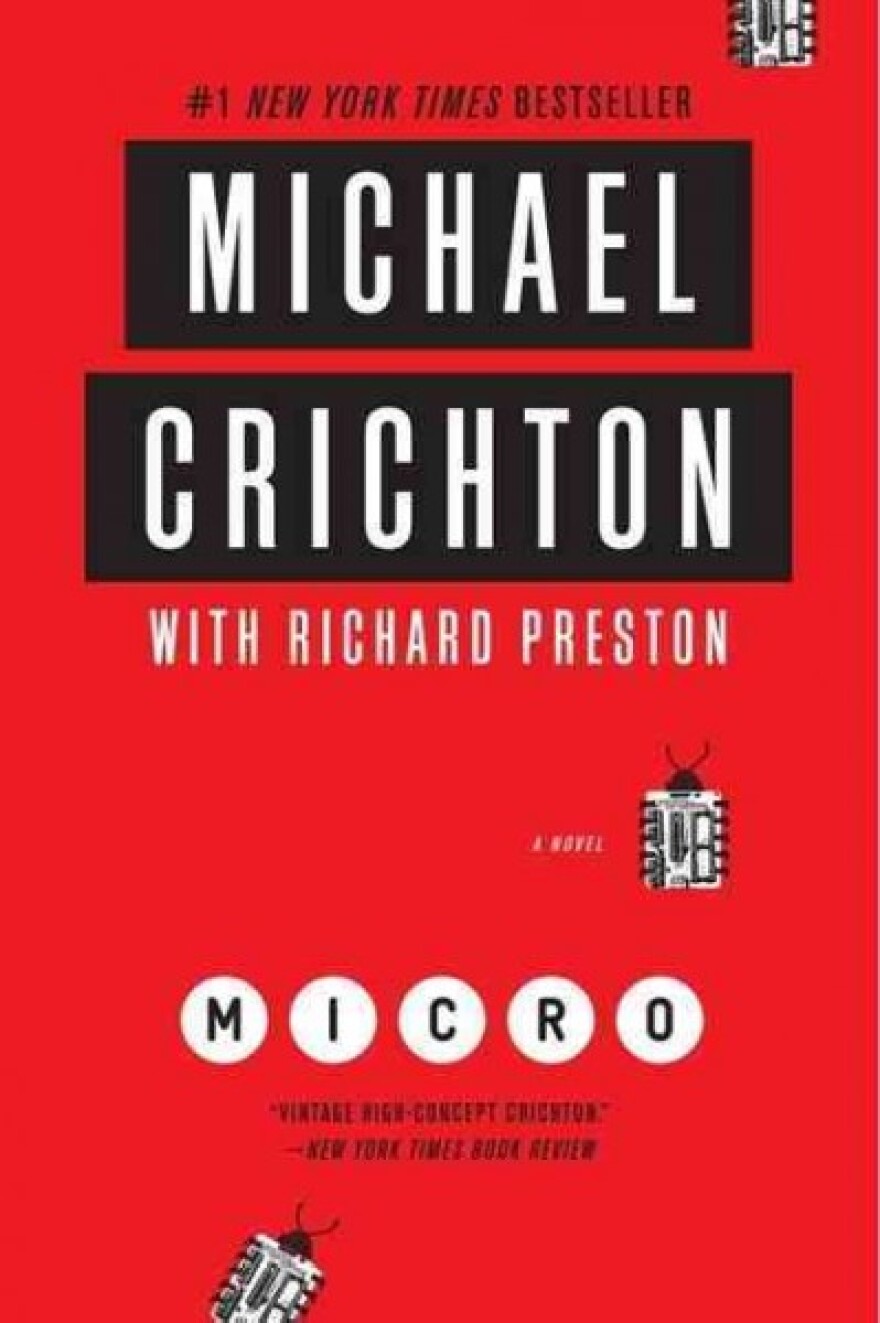Fiction and nonfiction softcover releases from Nadine Gordimer, Michael Crichton and Richard Preston, Anne Rice, Paul Krugman and Charles Murray.
Copyright 2024 NPR. To see more, visit https://www.npr.org.
New In Paperback: Feb. 4-10
No Time Like The Present

by Nadine Gordimer
"Nadine Gordimer's trademark characters live for politics, the Struggle," notes Fresh Air book critic Maureen Corrigan. But the twist in Gordimer's No Time Like the Present is that the end of apartheid in South Africa has brought "the well-deserved rewards of retreating into the private realm, pursuing personal ambition and even succumbing to the occasional frivolity," as Corrigan puts it. The novel follows an interracial couple, Steve and Jabu, over about 20 years, from their early relationship as activists, through marriage and parenthood, as Steve becomes a university professor and Jabu a lawyer. Yet for Gordimer's characters, living in what they refer to as "the Aftermath" turns out to be fraught with even greater moral ambiguity than the land of apartheid.
Micro

by Michael Crichton and Richard Preston
When best-selling novelist Michael Crichton died in 2008, he left behind an unfinished techno-thriller called Micro, which nonfiction writer Richard Preston took on the job of finishing. The novel picks up the nanotechnology theme that Crichton first played with in his 2002 novel, Prey. Only this time, the story is set on the Hawaiian island of Oahu, where an entrepreneur named Vin Drake has set up a company that manipulates molecules in order to make tiny machines. When a team of young science students arrives to work for the company, they get caught up in a plot involving murder and corporate greed — and get shrunk down to a size smaller than ants. "Crichton and Preston know the science better than anyone else," writes NPR book critic Alan Cheuse, so "the suddenly giant (from the new perspective of the desperately scrambling students) insects and plants, spiders and moths, bees, wasps and ants come to life much larger than life."
The Wolf Gift

by Anne Rice
One of the originators of the pop vampire genre, author Anne Rice, is back. And this time she's turned her attention to a furrier supernatural being. Reuben Golding, the protagonist of Rice's The Wolf Gift, becomes a werewolf in the classic way, and he enjoys it. "He likes the increased strength, the increased power, the sensuality and the heightened hearing," Rice tells NPR's Rachel Martin. Set in and among the beautiful and spooky places of Northern California, the novel reflects Rice's ongoing struggle with questions of good and evil. Reuben is a hero that's potentially evil but has a great capacity for good. And like Rice's previous vampire characters, he feels that as he fights between these two parts of his nature, he's figuring it all out by himself.
End This Depression Now!

by Paul Krugman
In End This Depression Now!, Paul Krugman writes that the U.S. is in the throes of a depression, not merely an economic crisis. The New York Times columnist and Nobel laureate argues that Keynesian economics got us out of a much worse depression in the 1930s and could get us out of this one too. Krugman tells NPR's Robert Siegel that he worries we're becoming accustomed to what he calls a "sustained period of really lousy economic performance and an enormous amount of suffering." He says, "We've kind of settled into the notion that this is the new normal. But it shouldn't be. And it's not something we should accept." He says that if he could make economic policy by fiat, he would start by rehiring all of the public sector employees who were laid off in the past four years, which could add well over a million jobs to the economy.
Coming Apart

by Charles Murray
In Coming Apart, libertarian social scientist Charles Murray argues that class strain has cleaved U.S. society into two groups: an upper class, defined by educational attainment, and a new lower class, characterized by the lack of it. Murray also posits that the new lower class is less industrious, less likely to marry and raise children in a two-parent household, and more politically and socially disengaged. By focusing solely on whites, Murray says, he is trying to correct the assumption that these are markers of the American racial divide. Our class divisions transcend race, he argues. In a conversation with NPR's Robert Siegel, Murray calls for upper-middle-class Americans to "drop their nonjudgmentalism and start preaching what they're practicing." They "are getting married and staying married. They work like crazy. They do better going to church. [They should] just say that ... 'These are rich, rewarding ways of living.' "






